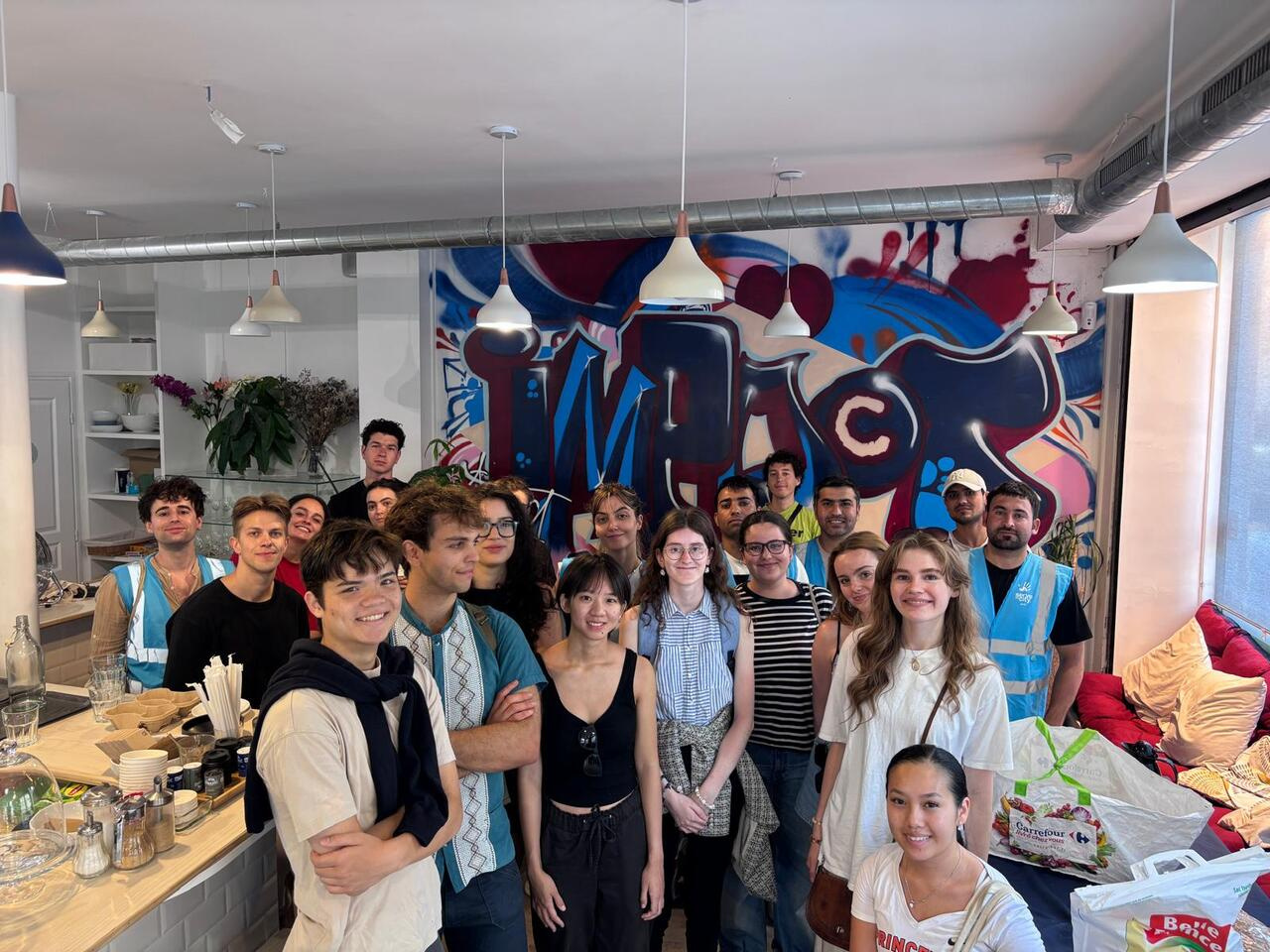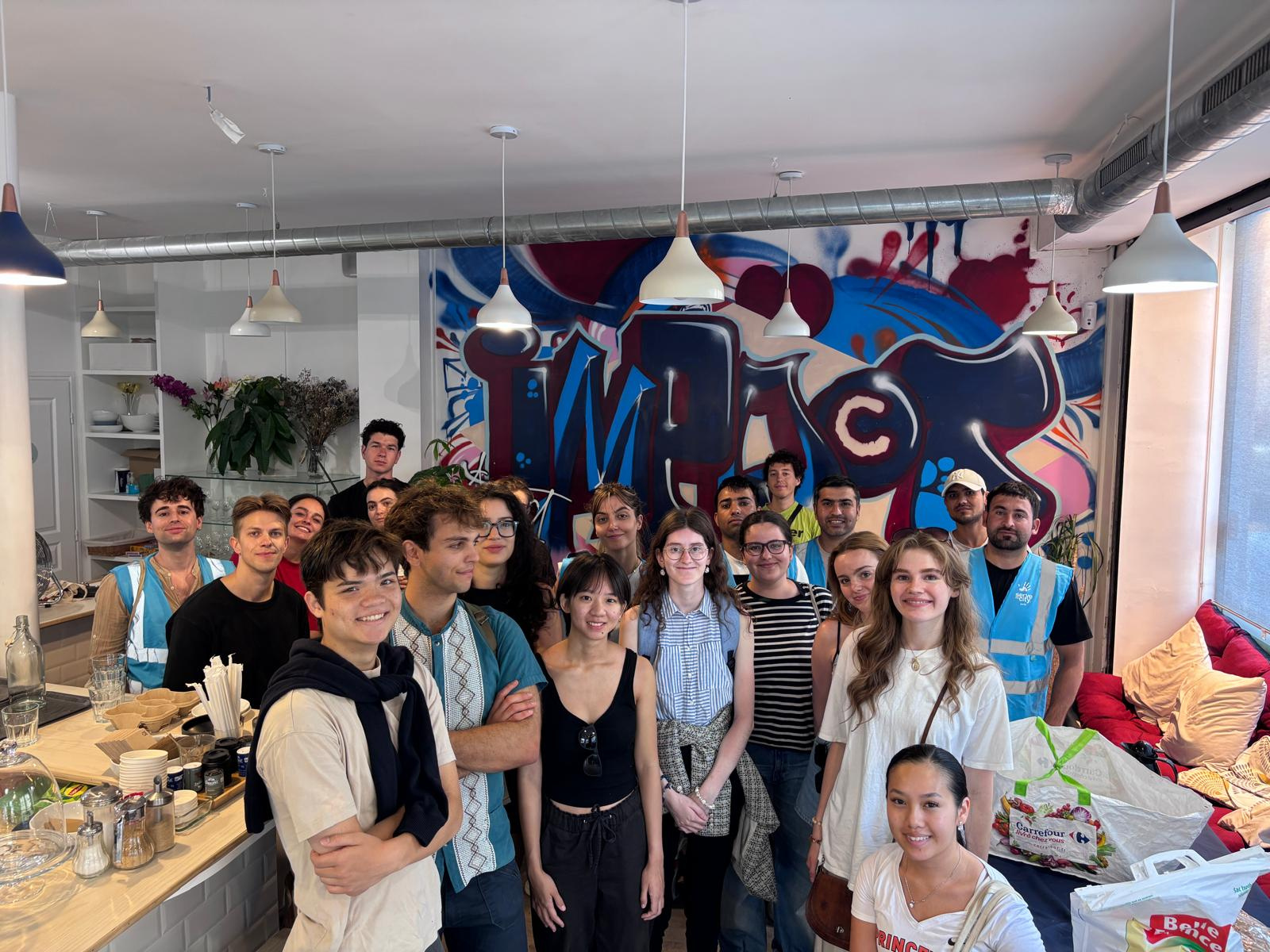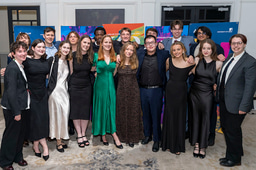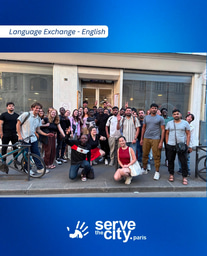Working with Serve the City: My LiA Impact Report

 Impact Report
Impact Report
This summer I underwent my Leadership in Action (LiA) project as part of the Laidlaw Scholarship. One of the main reasons I chose to do this project, and apply for Laidlaw at the start, was to make a positive difference to those who were negatively affected by the Inverse Care Law. This describes the phenomenon of how the availability of good medical and social services vary inversely with the population who need them the most. Essentially, populations who need the most medical care are least likely to receive it. For my Summer 2 project, I volunteered with one of the branches of Serve the City in Paris. The values and mission of this organisation deeply resonated with my personal volunteering experience which made it a natural choice for my Summer 2 Project.
Before my 6-week Leadership in Action experience, I had set out to volunteer with the pre-arranged daily activities, this included food distributions, assisting in soccer training, and teaching in English language exchange. Whilst I wanted to integrate into the weekly events and help during my time there, I had also wanted to start my own initiative. My plan was to arrange seminar-style First-Aid sessions to not only teach such important and life-saving skills, but also empower service users through learning and using these new skills. This summer was such an amazing opportunity; the ability to volunteer abroad, hear stories I would never have encountered here in Ireland, working with like-minded peers, and growing as a leader along the way.
The saying “The best laid plans of mice and men often go awry” was something I was familiar with before I embarked on this project. However, I never thought it would be something that I’d relate to after trying to meticulously plan my summer experience. The purpose of my project was rooted in supporting refugees, asylum seekers, and people experiencing homelessness. I hoped to participate in the organisations existing services and also incorporate some of my own ideas that I thought could be beneficial. My goal was to connect with volunteers and service users, understand their needs, help in meaningful ways, and to learn from them and their experiences.
Upon arriving, I was eager and ready to get started. I left my orientation feeling ready to get involved and that the goals I had set out to achieve this summer would be possible. However, I soon encountered an unexpected challenge with the structure of the organisation and the roles within. Getting involved in the normal weekly events was no issue. Trying to implement my own proved difficult. The activity leader whilst I was there did not want me to implement my own session at the organisation and the Managing Director was away the entire time I was there, leaving no room for negotiation on this. The was hard to navigate, as after speaking with other volunteers, it seemed as though the male volunteers were being given leadership roles for day-to-day activities and allowed to implement their ideas, but the female volunteers were not. I found this challenging to navigate, but felt it was best to achieve my overall goal through other methods.
To overcome this, I accepted the decision and then asked was there other projects or initiatives that I could contribute to. This led to being involved in other initiatives, such as trial running company fundraisers and coordinating logistics for the implementation of a new dehydration solution for the food distribution beneficiaries.
This project pushed me outside of my comfort zone. In a new environment and new country, I was trying to utilise skills I had to the best of my ability whilst trying to develop weaker ones. It gave me the opportunity to meet an amazing group of other young volunteers, one who also happened to be a Laidlaw scholar. I trialled different methods of communication-to suit different situations (working in a team during food distributions compared to teaching beneficiaries a new language). Using leadership skills in an unfamiliar environment, showed their strengths in certain situations, and particularly social and cultural awareness helped me recognise my limits as a short-term volunteer.
Being in a new country and volunteering, I had went over with an open mind and no presumptions. I was constantly reflecting during the experience on what I had learned from volunteers, beneficiaries, and about the culture of the country. Although I had worked with similar populations in Ireland, I realised the same approaches weren’t always the best or most effective. This meant learning from those I was working with and hearing from the service users what helped them most. One of my favourite parts of volunteering was hearing about beneficiaries stories since they had arrived in Paris and what life was like before. After Language Exchange sessions, they often taught me how to say hello or goodnight in their native language. Even though I was there to teach English, I came away with so much insight and learning from their lived experiences.
Even though no ethical dilemmas arose during the course of the project, I had spent time reflecting on the impact of my project and the concept of “voluntourism”. I’d never want to go over for personal benefit and leave no lasting or meaningful impact on the community I set out to help. To try and tackle this, I wanted to get involved in projects that would make positive and lasting difference beyond my time at Serve the City. This included developing fundraiser ideas that could be used after my departure and assisting with a dehydration initiative, a project that set out to tackle dehydration and electrolyte imbalances in the homeless community, especially during the warm summer months. This is something I try to continue to work on after finishing my LiA.
I also formed strong friendships with the other volunteers during my time there. We were able to work effectively during Serve the City activities, but also able to bond outside of the weekly schedule. It was eye opening to hear from other like-minded young people who had different experiences about their life, home, and what brought them to Serve the City. Despite the initial challenges with the activity leader and implementing my planned session, we fostered a stronger professional relationship that allowed us to work better as a team as time went on.
This 6-week summer experience gave me insight into global inequality, cross-cultural communication, and a deeper understanding of systemic issues faced by vulnerable populations. As a volunteer I learned to adapt to a new setting, use existing skills in a different environment when appropriate, and saw fist-hand the crucial role community plays in fostering resilience, hope, and growth. My LiA experience has reinforced the importance of empathy and kindness, adapt teaching to be inclusive and culturally aware, and the responsibility to advocate for those who need it most. As I reflect one of main things that drove me to apply for this scholarship, the Inverse Care Law, my Summer 2 project further deepened my awareness of structural inequalities and highlighted how, in whatever way I can, I should always strive to make a meaningful difference.



Please sign in
If you are a registered user on Laidlaw Scholars Network, please sign in